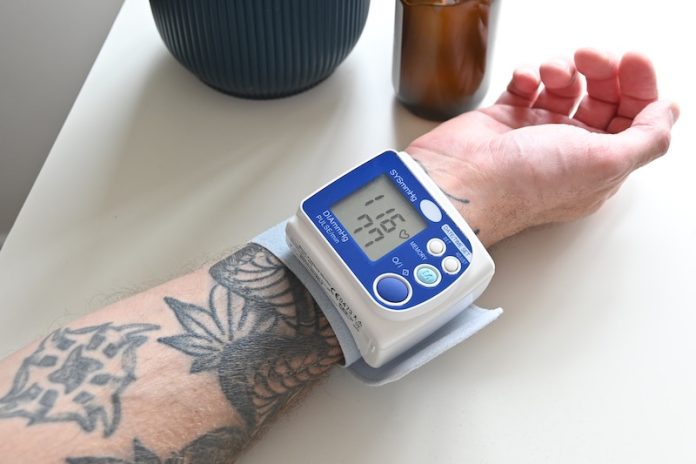
Blood pressure is a vital sign that helps determine our overall health. It plays a crucial role in forecasting severe health conditions such as strokes or heart failures.
Considering that cardiovascular diseases top the list as the leading cause of deaths worldwide, there’s an undoubted importance in consistently monitoring our blood pressure levels.
Traditional Monitoring vs. The New Technology
With the rise of wearable technology, there’s been a surge in health-monitoring devices, particularly those that track blood pressure.
Devices like smartwatches, utilizing LED-based photoplethysmography (PPG) technology, have tried to address this need.
However, these often fall short in accuracy, making it challenging to align with the stringent international standards for blood pressure measurement devices.
Enter Professor Keon Jae Lee’s team from KAIST and the Catholic University of Korea. They’ve crafted a wearable piezoelectric blood pressure sensor, distinguished by its precision and functionality.
This sensor was created by shifting an exceptionally sensitive, inorganic piezoelectric membrane from hard sapphire materials onto more adaptable ones.
Despite its ultra-thin nature (comparable to a fraction of human hair), this sensor can make direct contact with the skin. This allows it to capture accurate blood pressure readings by tapping into the subtle pulsations of blood vessels.
In practical application, the research team integrated this sensor into a wristwatch, making continuous blood pressure monitoring feasible.
The design includes a wireless communication circuit that filters, amplifies, and sends the blood pressure data to mobile devices, allowing users to track their health on the go.
Clinical Trials and Future Prospects
The effectiveness of this wearable sensor was put to the test at St. Mary’s Hospital of the Catholic University.
The results were impressive: the accuracy of the blood pressure readings aligned well with international standards, showcasing minimal error margins.
Professor Lee envisions a bright future for this innovation. He highlighted that one of their primary goals is to assist patients with high blood pressure in their day-to-day health monitoring.
The team’s upcoming projects include designing a comfortable patch-type sensor to keep track of blood pressure during sleep. They’re also gearing up to introduce these innovative products to the market through a startup venture.
The collaboration between KAIST and the Catholic University of Korea might have set the stage for a revolutionary shift in personal health care monitoring.
With the promise of accuracy and convenience, this wearable blood pressure sensor holds the potential to redefine how we keep tabs on our health.
If you care about high blood pressure, please read studies about a common and unrecognized cause of high blood pressure, and this small habit can greatly benefit people with high blood pressure, cholesterol.
For more information about heart health, please see recent studies about how espresso coffee affects your cholesterol level, and results showing Vitamin C linked to lower risk of heart failure.
The study was published in Advanced Materials.
Follow us on Twitter for more articles about this topic.
Copyright © 2023 Knowridge Science Report. All rights reserved.



